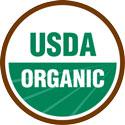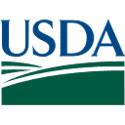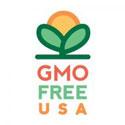Highlights
Paris Baguette Plans Aggressive Expansion Over Next Decade
 The CEO of fast-casual bakery Paris Baquette, founded in South Korea in 1942, has big plans for expansion of the chain in the U.S. Paris Baguette has only 75 locations here, though there are more than 3,000 in France, Korea, Singapore, Vietnam, and China. Jack Moran, a former CEO of international bakery-restaurant chain Le Pain Quotidien, plans to open at least 1,000 U.S. cafés by 2030, with 38 opening this year. That includes a 50 percent increase in company-operated cafés and a 120 percent increase in the number of U.S.-franchised cafés. In addition, Moran will introduce U.S. customers to a more upscale version of Paris Baguette – Maison de PB – which will debut Singapore this year, and in Manhattan in 2020. Why the switch from Le Pain Quotidien to Paris Baguette? "I was knocked out by the quality and breadth of the baked goods selection," Moran said.[Image Credit: © Paris Baguette USA Inc]
The CEO of fast-casual bakery Paris Baquette, founded in South Korea in 1942, has big plans for expansion of the chain in the U.S. Paris Baguette has only 75 locations here, though there are more than 3,000 in France, Korea, Singapore, Vietnam, and China. Jack Moran, a former CEO of international bakery-restaurant chain Le Pain Quotidien, plans to open at least 1,000 U.S. cafés by 2030, with 38 opening this year. That includes a 50 percent increase in company-operated cafés and a 120 percent increase in the number of U.S.-franchised cafés. In addition, Moran will introduce U.S. customers to a more upscale version of Paris Baguette – Maison de PB – which will debut Singapore this year, and in Manhattan in 2020. Why the switch from Le Pain Quotidien to Paris Baguette? "I was knocked out by the quality and breadth of the baked goods selection," Moran said.[Image Credit: © Paris Baguette USA Inc]
“Natural” Claim Continues To Lure Shoppers, Despite Lack Of Definition
.jpg&width=125&height=100) A Label Insight-sponsored survey of 1,000 adult consumers finds that using the word “natural” on food packaging will motivate as many as 53 percent of Americans to make a purchase. Natural is generally accepted to mean the absence of artificial flavors, sweeteners, preservatives, and color additives in products that are minimally processed. Fifty-one percent of shoppers were swayed by "no preservatives," particularly older generations. Sixty-three percent of Baby Boomers say a product with that claim would motivate them to buy compared to 46 percent of Generation X and 41 percent of Millennials. Other ingredients Americans are concerned about include: high fructose corn syrup (57 percent of older adults) and sugar (all ages). And shoppers increasingly want to know the conditions under which the fish, poultry and livestock they're eating were raised: "antibiotic free" (34 percent); "free range" (26 percent); "grass fed" (25 percent); and "pasture-raised" (17 percent) are the key terms. Oddly, free range and pasture-raised are synonymous.[Image Credit: © Label Insight, Inc.]
A Label Insight-sponsored survey of 1,000 adult consumers finds that using the word “natural” on food packaging will motivate as many as 53 percent of Americans to make a purchase. Natural is generally accepted to mean the absence of artificial flavors, sweeteners, preservatives, and color additives in products that are minimally processed. Fifty-one percent of shoppers were swayed by "no preservatives," particularly older generations. Sixty-three percent of Baby Boomers say a product with that claim would motivate them to buy compared to 46 percent of Generation X and 41 percent of Millennials. Other ingredients Americans are concerned about include: high fructose corn syrup (57 percent of older adults) and sugar (all ages). And shoppers increasingly want to know the conditions under which the fish, poultry and livestock they're eating were raised: "antibiotic free" (34 percent); "free range" (26 percent); "grass fed" (25 percent); and "pasture-raised" (17 percent) are the key terms. Oddly, free range and pasture-raised are synonymous.[Image Credit: © Label Insight, Inc.]
Genetically Engineered Salmon: Appearing Soon At Your Local Grocery Store
Big Upper Midwest Food Distributor SpartanNash “Cleans Up” Its House Brands
Legislation Would Require “Maine Raised” Meat And Poultry To Be Exactly That
 Consumers in Maine hoping to support the state’s poultry and cattle farmers are being misled by meat labeled “Maine Raised,” a phrase that suggests that food animals were raised and slaughtered locally. It is legal in the state for businesses to import animals from other states, slaughter them, and sell the meat as “Maine Raised,” usually at prices lower than actual Maine-raised meats. But a bill introduced by a legislator who happens to own an organic vegetable farm would require livestock such as beef, pork, or lamb be born and raised solely in the state. Poultry must be raised in the state from no later than seven days after hatching before it could be labeled and advertised as Maine raised. The legislation was well supported during recent hearings, and could soon make its way out of committee for a vote in the state House and Senate.[Image Credit: © Peggy und Marco Lachmann-Anke from Pixabay]
Consumers in Maine hoping to support the state’s poultry and cattle farmers are being misled by meat labeled “Maine Raised,” a phrase that suggests that food animals were raised and slaughtered locally. It is legal in the state for businesses to import animals from other states, slaughter them, and sell the meat as “Maine Raised,” usually at prices lower than actual Maine-raised meats. But a bill introduced by a legislator who happens to own an organic vegetable farm would require livestock such as beef, pork, or lamb be born and raised solely in the state. Poultry must be raised in the state from no later than seven days after hatching before it could be labeled and advertised as Maine raised. The legislation was well supported during recent hearings, and could soon make its way out of committee for a vote in the state House and Senate.[Image Credit: © Peggy und Marco Lachmann-Anke from Pixabay]
Even Organic Foods Can Be Tainted With Packaging Chemical Perchlorate
 Only 40 synthetic compounds are approved for use in organic food products, but a new report finds that choosing organic at the grocery store doesn’t always prevent exposure to harmful chemicals. One important “additive” approved by the FDA 14 years ago for use in packaging is the chemical perchlorate. According to the nonprofit Environmental Working Group (EWG), perchlorate has been contaminating a growing amount of food – infant formula, rice-based baby cereals, and dairy products – since 2005, and has had an enormous impact on the health of fetuses and young children: it is associated with significant declines in IQ, among other effects. The EWG and the Environmental Defense Fund (EDF) have asked the FDA to ban the chemical in food and have talked to food companies about testing food products for perchlorate. Some states are also considering whether to take action.[Image Credit: © Michal Jarmoluk from Pixabay.com]
Only 40 synthetic compounds are approved for use in organic food products, but a new report finds that choosing organic at the grocery store doesn’t always prevent exposure to harmful chemicals. One important “additive” approved by the FDA 14 years ago for use in packaging is the chemical perchlorate. According to the nonprofit Environmental Working Group (EWG), perchlorate has been contaminating a growing amount of food – infant formula, rice-based baby cereals, and dairy products – since 2005, and has had an enormous impact on the health of fetuses and young children: it is associated with significant declines in IQ, among other effects. The EWG and the Environmental Defense Fund (EDF) have asked the FDA to ban the chemical in food and have talked to food companies about testing food products for perchlorate. Some states are also considering whether to take action.[Image Credit: © Michal Jarmoluk from Pixabay.com]
States Continue To Define Terms Like “Meat” And “Rice” To Benefit Industry

South Dakota Governor Kristi Noem has signed legislation protecting the cattle and poultry industries by requiring "fake meat" products to be correctly labeled. Under the new law, misbranding occurs when companies intentionally label products in a false, deceptive or misleading manner that misrepresents it as meat or a meat by-product. Data from the USDA show South Dakota had over 4 million total head of cattle, including calves, as of January 1, 2019. The South Dakota Stock Growers Association said it believes meat substitutes should not be allowed to benefit from the “generations of hard work” that have created today’s market for actual meat food products. The law goes into effect July 1. Meanwhile, Gov. Asa Hutchinson of Arkansas signed into law a bill banning companies from marketing "cauliflower rice" if the product contains no rice. Arkansas is the nation's top rice-producing state.[Image Credit: © State of South Dakota]
Slicing A Bagel: When Innovation Sparks A Social Media Controversy
 It seems like a tempest in a teapot. But for some, especially devotees of the traditional bagel – sliced traditionally – it’s something of a typhoon. Social media foodies are engaged in an online battle over the advantages and disadvantages – or the virtues and horrors – of the “bread-sliced” bagel. Bread-sliced means sliced vertically instead of horizontally. The method was announced by someone in St. Louis who said he successfully introduced it to co-workers: “It was a hit!” he tweeted. But not for everyone, apparently. One shocked responder called it “an embarrassment to the whole sliced foods community." A bakery worker tweeted: “I have standards and a healthy respect for bagels." Others, however, lauded the slicing technique for creating a convenience: it’s easy to dip the slices in cream cheese “while walking, driving or typing at your desk.” Another said the bread-slicing "maximize[s] your surface area for spreads." And so the hullabaloo rages on.[Image Credit: © yuri hwang from Pixabay]
It seems like a tempest in a teapot. But for some, especially devotees of the traditional bagel – sliced traditionally – it’s something of a typhoon. Social media foodies are engaged in an online battle over the advantages and disadvantages – or the virtues and horrors – of the “bread-sliced” bagel. Bread-sliced means sliced vertically instead of horizontally. The method was announced by someone in St. Louis who said he successfully introduced it to co-workers: “It was a hit!” he tweeted. But not for everyone, apparently. One shocked responder called it “an embarrassment to the whole sliced foods community." A bakery worker tweeted: “I have standards and a healthy respect for bagels." Others, however, lauded the slicing technique for creating a convenience: it’s easy to dip the slices in cream cheese “while walking, driving or typing at your desk.” Another said the bread-slicing "maximize[s] your surface area for spreads." And so the hullabaloo rages on.[Image Credit: © yuri hwang from Pixabay]
Student App Could Be The “Bakery Of The Future”
Motivational Speaker Tony Robbins Launches Organic Bakery Inspired By Nuns
 Self-help speaker Tony Robbins has announced the creation of Nunbelievable, Inc., a mission-based, direct-to-consumer premium organic baked goods company whose sales will support the work of soup kitchens and food pantries. Nunbelievable was inspired by the handmade cookies and confectionary creations of the friars and nuns of St. Roger Abbey in association with the Chicago-based religious order Fraternité Notre Dame. The nuns’ San Francisco branch – they also work in Chicago, Detroit, and New York City – was operating a soup kitchen in the Tenderloin District, and was in danger of eviction when Robbins stepped in. covering their expenses for six months and donating $1 million to help them open a new facility. Robbins leads Feeding America's 1 Billion Meals Challenge, which has provided 420 million meals in the past four years and is on track to provide a half-billion meals this year.[Image Credit: © Nunbelievable, Inc]
Self-help speaker Tony Robbins has announced the creation of Nunbelievable, Inc., a mission-based, direct-to-consumer premium organic baked goods company whose sales will support the work of soup kitchens and food pantries. Nunbelievable was inspired by the handmade cookies and confectionary creations of the friars and nuns of St. Roger Abbey in association with the Chicago-based religious order Fraternité Notre Dame. The nuns’ San Francisco branch – they also work in Chicago, Detroit, and New York City – was operating a soup kitchen in the Tenderloin District, and was in danger of eviction when Robbins stepped in. covering their expenses for six months and donating $1 million to help them open a new facility. Robbins leads Feeding America's 1 Billion Meals Challenge, which has provided 420 million meals in the past four years and is on track to provide a half-billion meals this year.[Image Credit: © Nunbelievable, Inc]
Food Label Claims Continue To Cause Confusion
 At a recent agriculture meeting in Nebraska, a state farm bureau executive explained the real meaning of labels like “hormone free,” organic, and “locally grown.” The “hormone free” label, for example, indicates that no synthetic hormones were given to the animal. But both raw cabbage and humans have thousands of nanograms of estrogen in them naturally. And the label is meaningless on things like chicken because USDA does not allow added hormones in raising poultry or hogs. Furthermore, many foods claim to be organic, but only those actually regulated by USDA are "USDA Organic." Another area of confusion and even rancor is genetic modification. It is important for producers to be candid and passionate when discussing GMOs, because there are some genuinely valuable advances in the science. A new genetic modification for apples, for example, reduces food waste by preventing browning that can cause people to throw out perfectly good apples. Without the browning, the apples have a longer shelf life.[Image Credit: © US Department of Agriculture]
At a recent agriculture meeting in Nebraska, a state farm bureau executive explained the real meaning of labels like “hormone free,” organic, and “locally grown.” The “hormone free” label, for example, indicates that no synthetic hormones were given to the animal. But both raw cabbage and humans have thousands of nanograms of estrogen in them naturally. And the label is meaningless on things like chicken because USDA does not allow added hormones in raising poultry or hogs. Furthermore, many foods claim to be organic, but only those actually regulated by USDA are "USDA Organic." Another area of confusion and even rancor is genetic modification. It is important for producers to be candid and passionate when discussing GMOs, because there are some genuinely valuable advances in the science. A new genetic modification for apples, for example, reduces food waste by preventing browning that can cause people to throw out perfectly good apples. Without the browning, the apples have a longer shelf life.[Image Credit: © US Department of Agriculture]
Restaurant Industry In Mississippi Keeps Shackles On Home Bakers
 Mississippi’s restaurant industry is fighting, successfully so far, attempts to make it easier for home bakers – so-called cottage food operators – to sell their wares online. The state’s lawmakers a few years ago relaxed restrictions on home baking and selling, but left limitations on annual sales ($20,000) and display of images of baked goods on websites and social media. New legislation removing the restrictions passed the House, but died in the Senate, thanks to strong opposition from the Mississippi Restaurant Association, which claimed there was "widespread abuse creating an uneven playing field." Similar battles have been fought in the state, and elsewhere, between established industries and upstarts: food trucks vs. restaurants, small farmers vs. Big Agriculture, Airbnb vs. the hotel industry, Uber vs. taxi companies, etc. “Unfortunately for consumers, too often the response by lawmakers is to agree to protect the established interests rather than letting the market choose the winners and losers.”[Image Credit: © rodolfoguevara55 from Pixabay]
Mississippi’s restaurant industry is fighting, successfully so far, attempts to make it easier for home bakers – so-called cottage food operators – to sell their wares online. The state’s lawmakers a few years ago relaxed restrictions on home baking and selling, but left limitations on annual sales ($20,000) and display of images of baked goods on websites and social media. New legislation removing the restrictions passed the House, but died in the Senate, thanks to strong opposition from the Mississippi Restaurant Association, which claimed there was "widespread abuse creating an uneven playing field." Similar battles have been fought in the state, and elsewhere, between established industries and upstarts: food trucks vs. restaurants, small farmers vs. Big Agriculture, Airbnb vs. the hotel industry, Uber vs. taxi companies, etc. “Unfortunately for consumers, too often the response by lawmakers is to agree to protect the established interests rather than letting the market choose the winners and losers.”[Image Credit: © rodolfoguevara55 from Pixabay]
FDA Updating “Standards Of Identity” In Foods To Adjust For Healthful Ingredients
 The FDA says it is modernizing the standards of identity for many food products so that they can be formulated to be healthier and still use the term that most consumers recognize. An example is cheddar cheese. Under current rules, a company that wants to reduce the sodium and add a sodium replacement, like potassium chloride, it can’t call it cheddar cheese. The FDA says it’s a major priority, but a big endeavour because there are 278 standards of identity and all have to be changed by the long process of rulemaking. The agency says it is exploring ways these can be done more broadly and across different standards in broad categories. It will reopen a comment period on a 2000 proposed rule modernizing the standards of identity.[Image Credit: © U.S. Food and Drug Administration]
The FDA says it is modernizing the standards of identity for many food products so that they can be formulated to be healthier and still use the term that most consumers recognize. An example is cheddar cheese. Under current rules, a company that wants to reduce the sodium and add a sodium replacement, like potassium chloride, it can’t call it cheddar cheese. The FDA says it’s a major priority, but a big endeavour because there are 278 standards of identity and all have to be changed by the long process of rulemaking. The agency says it is exploring ways these can be done more broadly and across different standards in broad categories. It will reopen a comment period on a 2000 proposed rule modernizing the standards of identity.[Image Credit: © U.S. Food and Drug Administration]
In Restaurants, The “Gluten-Free” Claim Is Problematic
 Even tiny amounts of gluten in foods are troublesome for people with celiac disease, and restaurants may be the most difficult places to avoid the protein, according to a recent study published in the American Journal of Gastroenterology. More than half of gluten-free pizza and pasta dishes in restaurants, for example, tested positive for the presence of gluten; a third of supposedly gluten-free foods had detectable gluten. Researcher Benjamin Lebwohl used data uploaded by users of the portable device Nima Gluten Sensor, used by restaurants to test foods. The manufacturer supplied 5,624 food tests by 804 users over 18 months. The research showed 32 percent of tests revealed detectable gluten in dishes that were supposed to be gluten-free. Gluten-free pasta samples were positive in 51 percent of tests; gluten-free pizza contained gluten for 53 percent. [Image Credit: © Kurious from Pixabay]
Even tiny amounts of gluten in foods are troublesome for people with celiac disease, and restaurants may be the most difficult places to avoid the protein, according to a recent study published in the American Journal of Gastroenterology. More than half of gluten-free pizza and pasta dishes in restaurants, for example, tested positive for the presence of gluten; a third of supposedly gluten-free foods had detectable gluten. Researcher Benjamin Lebwohl used data uploaded by users of the portable device Nima Gluten Sensor, used by restaurants to test foods. The manufacturer supplied 5,624 food tests by 804 users over 18 months. The research showed 32 percent of tests revealed detectable gluten in dishes that were supposed to be gluten-free. Gluten-free pasta samples were positive in 51 percent of tests; gluten-free pizza contained gluten for 53 percent. [Image Credit: © Kurious from Pixabay]
Nigerian Entrepreneur Recycles Egg Shells Into Gold
 A Nigerian expert in agricultural waste recycling has developed a “gold mine” of a process for recycling egg shells – donated by bakeries, hatcheries, confectionaries, etc. – for use by a variety of industries. The cosmetics industry, for example, uses egg shells to make body care products. Other examples listed by Ogochukwu Maduako include the pharmaceutical industry (medicine production), the paint industry (as a pigment), and the agricultural sector (for calcium supplementation). Egg shells can also be turned into an effective scouring powder in the home for washing pots and pans, sinks, and bathtubs. Maduako’s mission? “To change the narratives of agricultural waste through eggshells. I want agricultural waste to be seen differently – more like the gold that it is.”[Image Credit: © Corophoto from Pixabay]
A Nigerian expert in agricultural waste recycling has developed a “gold mine” of a process for recycling egg shells – donated by bakeries, hatcheries, confectionaries, etc. – for use by a variety of industries. The cosmetics industry, for example, uses egg shells to make body care products. Other examples listed by Ogochukwu Maduako include the pharmaceutical industry (medicine production), the paint industry (as a pigment), and the agricultural sector (for calcium supplementation). Egg shells can also be turned into an effective scouring powder in the home for washing pots and pans, sinks, and bathtubs. Maduako’s mission? “To change the narratives of agricultural waste through eggshells. I want agricultural waste to be seen differently – more like the gold that it is.”[Image Credit: © Corophoto from Pixabay]
Company Seeks Quick Commercialization Of Onsite Food Waste Processor
Japanese Soufflé Pancakes Take Instagram – And America – By Storm
.jpg&width=125&height=83) The Japanese soufflé pancake is a fast-growing trend on Instagram: more than 50,000 photos of the fluffy concoctions appear there. Long lines at cafés here and abroad wait to be served the delicacies made with an airy vanilla batter, toasted lightly on each side in a pan, then topped with match custard sauce, boba pearls, fresh berries, or maple syrup and butter. Though their origin is a subject of debate, soufflé pancakes are fluffier and taller – at least two inches high – than American pancakes because they are made from a meringue-based batter using egg yolks mixed with flour, milk and sometimes baking powder, and with egg whites and sugar beaten into a stiff meringue and folded together. The mixture is scooped into ring molds on a frying pan. They end up with a marshmallow-like texture because they’re cooked at a low temperature for a relatively long amount of time.[Image Credit: © nobu sato from Pixabay]
The Japanese soufflé pancake is a fast-growing trend on Instagram: more than 50,000 photos of the fluffy concoctions appear there. Long lines at cafés here and abroad wait to be served the delicacies made with an airy vanilla batter, toasted lightly on each side in a pan, then topped with match custard sauce, boba pearls, fresh berries, or maple syrup and butter. Though their origin is a subject of debate, soufflé pancakes are fluffier and taller – at least two inches high – than American pancakes because they are made from a meringue-based batter using egg yolks mixed with flour, milk and sometimes baking powder, and with egg whites and sugar beaten into a stiff meringue and folded together. The mixture is scooped into ring molds on a frying pan. They end up with a marshmallow-like texture because they’re cooked at a low temperature for a relatively long amount of time.[Image Credit: © nobu sato from Pixabay]
Three Federal Agencies To Work Together To Reduce Nation’s Food Waste
 The U.S. Department of Agriculture (USDA), U.S. Environmental Protection Agency (EPA), and U.S. Food and Drug Administration (FDA) have joined forces to create an interagency strategy to address food waste. At an event held at EPA headquarters, state, local and community leaders and others shared ideas on how all levels of government can cooperate to reduce food waste. The “Winning on Reducing Food Waste Strategy” includes six priority areas the agencies will focus on over the next year: enhance interagency coordination; increase consumer education and outreach efforts; improve coordination and guidance on food loss and waste measurement; clarify and communicate information on food safety, food date labels, and food donations; collaborate with private industry to reduce food loss and waste across the supply chain; and encourage food waste reduction by federal agencies in their respective facilities. “Our nation’s agricultural abundance should be used to nourish those in need, not fill the trash,” said USDA Secretary Sonny Perdue. [Image Credit: © USDA]
The U.S. Department of Agriculture (USDA), U.S. Environmental Protection Agency (EPA), and U.S. Food and Drug Administration (FDA) have joined forces to create an interagency strategy to address food waste. At an event held at EPA headquarters, state, local and community leaders and others shared ideas on how all levels of government can cooperate to reduce food waste. The “Winning on Reducing Food Waste Strategy” includes six priority areas the agencies will focus on over the next year: enhance interagency coordination; increase consumer education and outreach efforts; improve coordination and guidance on food loss and waste measurement; clarify and communicate information on food safety, food date labels, and food donations; collaborate with private industry to reduce food loss and waste across the supply chain; and encourage food waste reduction by federal agencies in their respective facilities. “Our nation’s agricultural abundance should be used to nourish those in need, not fill the trash,” said USDA Secretary Sonny Perdue. [Image Credit: © USDA]
British Food Waste Recycler Tells Foodservice Industry How To Cut Waste
 ReFood, the U.K.’s leading food waste recycler, believes the country should be ranked higher than 24th in the world in reducing food waste. The British foodservice industry is producing a million tons of unnecessary food waste annually at a cost of $3.2 billion a year. Research suggests 75 percent of this waste is completely avoidable. The country’s pubs, restaurants and food outlets can implement several ReFood strategies to reduce waste: be sensible with stock, storage and stock rotation; use accurate temperature control to prevent growth of harmful pathogenic bacteria and minimize spoilage; label all stored food clearly; review portion sizes to prevent uneaten food from being wasted; link up with a local charity and donate leftovers; mix up the menu to give customers more choice about what’s on their plate; and expand food safety training to include food waste training.[Image Credit: © Free-Photos from Pixabay]
ReFood, the U.K.’s leading food waste recycler, believes the country should be ranked higher than 24th in the world in reducing food waste. The British foodservice industry is producing a million tons of unnecessary food waste annually at a cost of $3.2 billion a year. Research suggests 75 percent of this waste is completely avoidable. The country’s pubs, restaurants and food outlets can implement several ReFood strategies to reduce waste: be sensible with stock, storage and stock rotation; use accurate temperature control to prevent growth of harmful pathogenic bacteria and minimize spoilage; label all stored food clearly; review portion sizes to prevent uneaten food from being wasted; link up with a local charity and donate leftovers; mix up the menu to give customers more choice about what’s on their plate; and expand food safety training to include food waste training.[Image Credit: © Free-Photos from Pixabay]
Barley: Not Just For The Farm Trough Anymore
 A chef in the Pittsburgh area sings the praises of his “favorite grain,” barley – the No. 4 whole grain produced in the world, but the least eaten at the table. Joe Carei acknowledges that barley hasn’t quite made it to the mainstream of home-cooking ingredients – it’s mostly used to feed animals – but home cooks should give it a chance. He suggests, for example, substituting it for side dishes like rice, pasta, and risotto because the healthful grain is inexpensive, filling, a great source of fiber, and easily added to the diet. It can be incorporated into soups, salads or bread. In terms of health, barley can be classified as a superfood: it helps control blood sugar, prevents diabetes, reduces blood pressure and cholesterol, prevents gallstones, and helps with prevention of colon cancer. So “if you are tired of rice or potatoes,” Carei says, “give barley a call. It's waiting.”[Image Credit: © FotoshopTofs from Pixabay]
A chef in the Pittsburgh area sings the praises of his “favorite grain,” barley – the No. 4 whole grain produced in the world, but the least eaten at the table. Joe Carei acknowledges that barley hasn’t quite made it to the mainstream of home-cooking ingredients – it’s mostly used to feed animals – but home cooks should give it a chance. He suggests, for example, substituting it for side dishes like rice, pasta, and risotto because the healthful grain is inexpensive, filling, a great source of fiber, and easily added to the diet. It can be incorporated into soups, salads or bread. In terms of health, barley can be classified as a superfood: it helps control blood sugar, prevents diabetes, reduces blood pressure and cholesterol, prevents gallstones, and helps with prevention of colon cancer. So “if you are tired of rice or potatoes,” Carei says, “give barley a call. It's waiting.”[Image Credit: © FotoshopTofs from Pixabay]
Rhode Island City Expands Leftover Food “Sharing Tables” To All Schools
 Pawtucket, R.I., has begun implementing a plan to cut down on food waste and make sure hungry children are properly fed. The plan is based on the concept of “sharing tables,” once an informal way for students to take food discarded by classmates. The method is being expanded to more schools this year. Beginning in April, foodservice provider Aramark will add ice packs and soft-shell coolers, allowing more items to be saved and given to students who need or want them. Company representatives will also be able to track exactly how much waste is being reduced by weighing poundage thrown away. Incorporating coolers, ice packs, signage, and training of staff will help make sharing tables a “routine staple of what we do.” An Aramark rep said.[Image Credit: © Mabel Amber from Pixabay]
Pawtucket, R.I., has begun implementing a plan to cut down on food waste and make sure hungry children are properly fed. The plan is based on the concept of “sharing tables,” once an informal way for students to take food discarded by classmates. The method is being expanded to more schools this year. Beginning in April, foodservice provider Aramark will add ice packs and soft-shell coolers, allowing more items to be saved and given to students who need or want them. Company representatives will also be able to track exactly how much waste is being reduced by weighing poundage thrown away. Incorporating coolers, ice packs, signage, and training of staff will help make sharing tables a “routine staple of what we do.” An Aramark rep said.[Image Credit: © Mabel Amber from Pixabay]
Meat Companies May Be Misleading Consumers By Claiming Products Are “Natural”
 Although American consumers want “all-natural” meats – with no antibiotics, hormones, or preservatives – the USDA says that in meats and poultry “natural” only means no artificial ingredients and minimal processing. Major meat companies, meanwhile, are catering to consumer desires by claiming or implying in advertising that their products are natural. Those claims are legal, as long as they follow USDA guidelines, even if they mislead shoppers. That was basically the ruling of the D.C. Superior Court when on April 8 it dismissed a lawsuit by the Animal Legal Defense Fund (ALDF) alleging Hormel was misleading consumers. But in statements disclosed in the court filing, a Hormel executive said the same pigs it uses to make its famous Spam brand meat product are also used in Natural Choice pork products. Those pigs are often given antibiotics and are rarely allowed outdoors. An ALDF attorney said Hormel was engaged in “a massive attempt to manipulate and dupe the consumer to purchase something they have no intention to purchase.” [Image Credit: © Lloyd's Barbeque Company, LLC]
Although American consumers want “all-natural” meats – with no antibiotics, hormones, or preservatives – the USDA says that in meats and poultry “natural” only means no artificial ingredients and minimal processing. Major meat companies, meanwhile, are catering to consumer desires by claiming or implying in advertising that their products are natural. Those claims are legal, as long as they follow USDA guidelines, even if they mislead shoppers. That was basically the ruling of the D.C. Superior Court when on April 8 it dismissed a lawsuit by the Animal Legal Defense Fund (ALDF) alleging Hormel was misleading consumers. But in statements disclosed in the court filing, a Hormel executive said the same pigs it uses to make its famous Spam brand meat product are also used in Natural Choice pork products. Those pigs are often given antibiotics and are rarely allowed outdoors. An ALDF attorney said Hormel was engaged in “a massive attempt to manipulate and dupe the consumer to purchase something they have no intention to purchase.” [Image Credit: © Lloyd's Barbeque Company, LLC]
New York Enacts Law To Reduce Food Waste, Feed The Needy
 New York State has enacted first-of-its-kind food waste legislation designed to direct more healthy food to disadvantaged New Yorkers while reducing climate pollution around the state. The Food Donation and Food Scrap Recycling Act, effective in 2022, will require large food generators – including supermarkets, colleges, hotels, and sporting venues – to donate leftover edible food. Remaining scraps must be prepared as animal feed or compost if a recycling facility is within 25 miles. However, most food generators covered under the law are exempt from this provision because they're more than 25 miles from a recycler. Proponents of the food waste requirements expect that the language in the recently adopted state budget will encourage businesses to open organic recycling facilities in the next two and a half years.[Image Credit: © pasja1000 from Pixabay]
New York State has enacted first-of-its-kind food waste legislation designed to direct more healthy food to disadvantaged New Yorkers while reducing climate pollution around the state. The Food Donation and Food Scrap Recycling Act, effective in 2022, will require large food generators – including supermarkets, colleges, hotels, and sporting venues – to donate leftover edible food. Remaining scraps must be prepared as animal feed or compost if a recycling facility is within 25 miles. However, most food generators covered under the law are exempt from this provision because they're more than 25 miles from a recycler. Proponents of the food waste requirements expect that the language in the recently adopted state budget will encourage businesses to open organic recycling facilities in the next two and a half years.[Image Credit: © pasja1000 from Pixabay]
U.S. Pastry Chefs Put Their Personal Stamp On Cookies-And-Milk
 Pastry chefs at restaurants around the U.S. are personalizing an old standby dessert: cookies and milk. A chef at a small plates restaurant in Pittsburgh, for example, serves a selection of 13 cookie creations on a miniature table – a nod to the Ohio/Pennsylvania wedding tradition known as the cookie table – set with four glasses of milk. The cookie selections for the $30 dessert for two-to-four people include, on a rotating basis, lemon poppy swirls; phun-phetti, a cream cheese sugar cookie coated in rainbow jimmies, etc. Southern cuisine restaurant Kitchen Notes in Nashville, Tenn., serves a plate of two cookies – bourbon-soaked oatmeal raisin and caramel pecan chocolate chip – with a carafe of milk for $8. And Washington, D.C. ramen eatery Toki Underground serves a plate of white chocolate and rosemary cookies with matcha milk and matcha buttercream for $7. [Image Credit: © hewq from Pixabay]
Pastry chefs at restaurants around the U.S. are personalizing an old standby dessert: cookies and milk. A chef at a small plates restaurant in Pittsburgh, for example, serves a selection of 13 cookie creations on a miniature table – a nod to the Ohio/Pennsylvania wedding tradition known as the cookie table – set with four glasses of milk. The cookie selections for the $30 dessert for two-to-four people include, on a rotating basis, lemon poppy swirls; phun-phetti, a cream cheese sugar cookie coated in rainbow jimmies, etc. Southern cuisine restaurant Kitchen Notes in Nashville, Tenn., serves a plate of two cookies – bourbon-soaked oatmeal raisin and caramel pecan chocolate chip – with a carafe of milk for $8. And Washington, D.C. ramen eatery Toki Underground serves a plate of white chocolate and rosemary cookies with matcha milk and matcha buttercream for $7. [Image Credit: © hewq from Pixabay]
Even Vasectomies Deserve A Special-Occasion Cake
 For small bakers, making cakes for offbeat occasions is a way to increase profits as the market for traditional birthday-wedding-communion-graduation cakes grows stale. One of those offbeat occasions is the vasectomy: about 500,000 are performed in the U.S. each year. Vasectomy cakes topped with scissors, well-placed blueberries, and fondant sperm have become a social media sensation. One such cake caused a buzz on Instagram: the post by Signature Desserts in Nolensville, Tenn., showcased a buttercream-frosted cake with "100% JUICE NO SEEDS HAPPY VASECTOMY!" written on top. The $30 six-inch red velvet cake featured lemons hand-painted on edible paper. Since then, the bakery has gotten requests for hysterectomy cakes.[Image Credit: © Signature Desserts Nate Clingman]
For small bakers, making cakes for offbeat occasions is a way to increase profits as the market for traditional birthday-wedding-communion-graduation cakes grows stale. One of those offbeat occasions is the vasectomy: about 500,000 are performed in the U.S. each year. Vasectomy cakes topped with scissors, well-placed blueberries, and fondant sperm have become a social media sensation. One such cake caused a buzz on Instagram: the post by Signature Desserts in Nolensville, Tenn., showcased a buttercream-frosted cake with "100% JUICE NO SEEDS HAPPY VASECTOMY!" written on top. The $30 six-inch red velvet cake featured lemons hand-painted on edible paper. Since then, the bakery has gotten requests for hysterectomy cakes.[Image Credit: © Signature Desserts Nate Clingman]
New Technology Takes The Stickiness Out Of Bread Production
 Commercial bread-making machinery typically includes scrapers that constantly push the sticky dough away from the sides of the container. The drawback is that the constant scraping can result in over-kneading and a denser loaf. One answer to the problem could be a more slippery container that requires no scraping and thus produces better-tasting bread. That answer may be on its way, thanks to a team of researchers from MIT that has tackled the problem of how to get much thicker materials to slide without sticking or deforming. The team has developed what are called liquid-impregnated surfaces that are based on a combination of a specially textured surface and a liquid lubricant that coats the surface and remains trapped in place through capillary action. The result? Nearly 100 percent friction reduction for gel-like fluids and sticky pastes.[Image Credit: © Massachusetts Institute of Technology]
Commercial bread-making machinery typically includes scrapers that constantly push the sticky dough away from the sides of the container. The drawback is that the constant scraping can result in over-kneading and a denser loaf. One answer to the problem could be a more slippery container that requires no scraping and thus produces better-tasting bread. That answer may be on its way, thanks to a team of researchers from MIT that has tackled the problem of how to get much thicker materials to slide without sticking or deforming. The team has developed what are called liquid-impregnated surfaces that are based on a combination of a specially textured surface and a liquid lubricant that coats the surface and remains trapped in place through capillary action. The result? Nearly 100 percent friction reduction for gel-like fluids and sticky pastes.[Image Credit: © Massachusetts Institute of Technology]
At Google’s Cafés, Chefs Pay Close Attention To Food Waste
 At its headquarters in Mountain View, California, Google operates several cafés that serve 200,000 free meals a day. In 2014, Google started working with Leanpath, a company that provides equipment to measure and track food waste, and it coaches chefs on how to use that data. Google’s chefs carefully weigh ingredients that can’t be used to determine exactly how much food is wasted. They cook in batches to avoid preparing too much food, and adjust through the meal. By using these methods, Google says, it has kept more than six million pounds of food from going to landfills or compost. “The reality is that the act of measurement is, in and of itself, a very profound intervention,” says Andrew Shakman, CEO of Leanpath. [Image Credit: © Free-Photos from Pixabay]
At its headquarters in Mountain View, California, Google operates several cafés that serve 200,000 free meals a day. In 2014, Google started working with Leanpath, a company that provides equipment to measure and track food waste, and it coaches chefs on how to use that data. Google’s chefs carefully weigh ingredients that can’t be used to determine exactly how much food is wasted. They cook in batches to avoid preparing too much food, and adjust through the meal. By using these methods, Google says, it has kept more than six million pounds of food from going to landfills or compost. “The reality is that the act of measurement is, in and of itself, a very profound intervention,” says Andrew Shakman, CEO of Leanpath. [Image Credit: © Free-Photos from Pixabay]
Baked Goods Ingredient Raises Risk Of Obesity And Diabetes
 A study published in the journal Science Translational Medicine reports that propionate, an ingredient widely used in animal feed, artificial flavorings, and baked goods, may cause a spike in hormones that can raise the risk of diabetes and obesity. Propionate consumption can increase substances in the human body that create excessive insulin and insulin resistance. The researchers observed significant weight gain and a rise in glucose in lab mice, which led to hyperglycemia in the animals. They also tested it in humans, finding that propionate eaters had significant increases in norepinephrine, along with FABP4 and glucagon. These results suggest that propionate could lead to both obesity and diabetes.[Image Credit: © Sornram Srithong from Pixabay]
A study published in the journal Science Translational Medicine reports that propionate, an ingredient widely used in animal feed, artificial flavorings, and baked goods, may cause a spike in hormones that can raise the risk of diabetes and obesity. Propionate consumption can increase substances in the human body that create excessive insulin and insulin resistance. The researchers observed significant weight gain and a rise in glucose in lab mice, which led to hyperglycemia in the animals. They also tested it in humans, finding that propionate eaters had significant increases in norepinephrine, along with FABP4 and glucagon. These results suggest that propionate could lead to both obesity and diabetes.[Image Credit: © Sornram Srithong from Pixabay]
Aryzta Now Selling Frozen Danish Pastries To U.S. Foodservice Market
A La Mode Ice Cream Gets Rid Of All Artificial Flavors, Colors
 Egg-free ice cream brand A La Mode of New York announced it is transitioning to all-natural ingredients while introducing a packaging update to the current upbeat and playful cartons, most notably including color changing spoons. The nut-, sesame- and egg-free line is being revamped with all-natural coloring and ingredients now available in pints and soon to be offered in cups and bars. The company also noted that its cartons will be fully recyclable in an effort to further A La Mode's mission to be fully sustainable.[Image Credit: © A La Mode Shoppe]
Egg-free ice cream brand A La Mode of New York announced it is transitioning to all-natural ingredients while introducing a packaging update to the current upbeat and playful cartons, most notably including color changing spoons. The nut-, sesame- and egg-free line is being revamped with all-natural coloring and ingredients now available in pints and soon to be offered in cups and bars. The company also noted that its cartons will be fully recyclable in an effort to further A La Mode's mission to be fully sustainable.[Image Credit: © A La Mode Shoppe]
Fast Food Restaurants Are Selling Roundup Herbicide With Their Entrees
 Nonprofit foodservice industry watchdog GMO Free USA published a report detailing the results of food tests for glyphosate residue across fifteen popular fast food and casual restaurants in the U.S. A Panera Bread sample had the highest level of glyphosate of all 44 restaurant foods tested. The irony is that the company’s primary marketing claim is: "100 percent of our food is 100 percent clean." Other restaurants tested include Chili's Grill & Bar, Domino's Pizza, Dunkin' Donuts, IHOP, Le Pain Quotidien, McDonald's, Olive Garden, Outback Steakhouse, Papa John's, Pizza Hut, Pret a Manger, Subway, Taco Bell, and Whole Foods Market. Glyphosate has been linked to cancer, disturbances in the microbiome and the depletion of our bodies' ability to detoxify." A growing body of peer-reviewed science links glyphosate to numerous health harms at levels found in some restaurant foods tested. [Image Credit: © GMO Free USA]
Nonprofit foodservice industry watchdog GMO Free USA published a report detailing the results of food tests for glyphosate residue across fifteen popular fast food and casual restaurants in the U.S. A Panera Bread sample had the highest level of glyphosate of all 44 restaurant foods tested. The irony is that the company’s primary marketing claim is: "100 percent of our food is 100 percent clean." Other restaurants tested include Chili's Grill & Bar, Domino's Pizza, Dunkin' Donuts, IHOP, Le Pain Quotidien, McDonald's, Olive Garden, Outback Steakhouse, Papa John's, Pizza Hut, Pret a Manger, Subway, Taco Bell, and Whole Foods Market. Glyphosate has been linked to cancer, disturbances in the microbiome and the depletion of our bodies' ability to detoxify." A growing body of peer-reviewed science links glyphosate to numerous health harms at levels found in some restaurant foods tested. [Image Credit: © GMO Free USA]
Companies, Organizations
Despite Some Blips, Danone Says It’s On Track For Solid Growth In 2019
Despite a couple of disturbing first-quarter setbacks, yogurt giant Danone is sticking to forecasts that call for accelerated sales in the second quarter and three percent like-for-like sales growth for the year. The company faced a consumer boycott in Morocco early in 2018 over its strategy of raising prices to counter falling sales; sales of infant formula in China drooped compared with last year. First-quarter sales rose a modest 0.8 percent to $6.9 billion, compared to 2.4 percent growth in the fourth quarter of 2018. Nevertheless, the company says it is still on track to achieve three percent like-for-like sales growth for the full year. The major operating divisions – Essential Dairy & Plant-based (EDP), Specialized Nutrition, and Waters – recorded like-for-like sales growth in the quarter. The Waters division grew 3.9 percent, thanks in part to the increased distribution of Evian waters in the U.S.
Copyright 2024 Business360, Inc.


